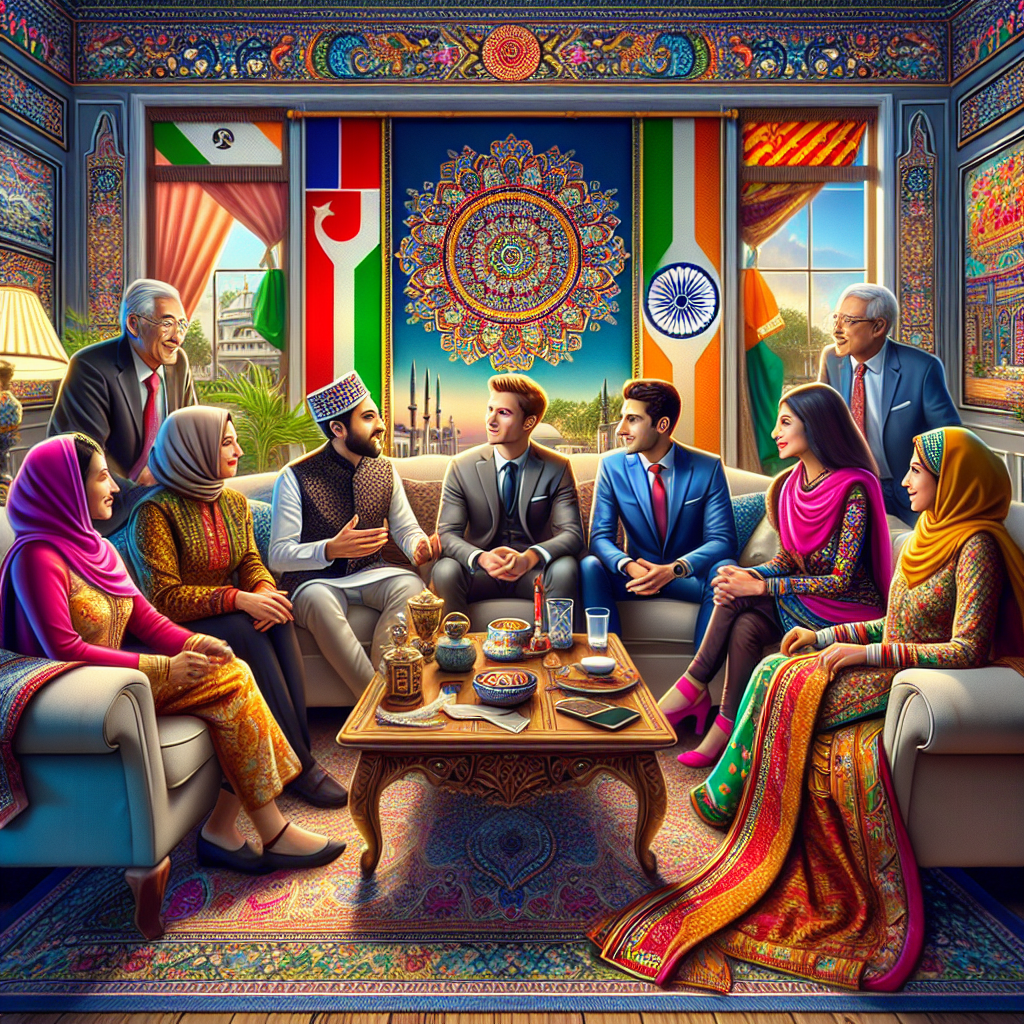In recent years, television has witnessed a surge of diverse narratives, with numerous shows highlighting underrepresented communities. One show that has made significant strides in this area is "Family Karma." Airing on Bravo, "Family Karma" is a groundbreaking reality series that delves deep into the lives of South Asian Americans living in Miami. By weaving together cultural nuances, familial bonds, and personal challenges, the show redefines representation while highlighting the unique experiences of a community often overlooked in mainstream media.
The Concept of Family Karma
"Family Karma" first premiered in March 2020 and quickly garnered attention for its fresh perspective on the South Asian experience in America. The show focuses on the lives of several young adults, primarily of Indian descent, who exhibit a rich mix of heritage and contemporary American lifestyle. Unlike many other reality series that often emphasize drama and sensationalism, "Family Karma" places significant importance on family dynamics, cultural values, and the challenges of navigating life as an American with Indian roots.
Essentially, the show sheds light on the multifaceted nature of identity, examining themes such as generational conflict, expectations around marriage, and the balancing act between tradition and modernity. The cast includes a range of personalities, each bringing their own stories and struggles to the screen, providing viewers with a comprehensive view of South Asian lives in America.
A Cultural Showcase
One of the most compelling aspects of "Family Karma" is its commitment to showcasing South Asian culture authentically. From elaborate Hindu ceremonies to vibrant food traditions, the series provides a fascinating look at how cultural heritage continues to influence the lives of the main characters.
The cast introduces viewers to traditional Indian customs, illuminating various aspects of life such as religious observances, family values, and even the intricacies of the Indian wedding culture. Food, in particular, plays a significant role in the show, highlighting how meals can serve as a bridge between generations and a source of connection within families. By illustrating these cultural practices, "Family Karma" helps demystify South Asian traditions for a broader audience while resonating deeply with South Asian viewers who share similar experiences.
Authentic Representation
"Family Karma" goes beyond merely presenting cultural elements; it challenges stereotypes and assumptions about the South Asian community. Traditional media representations have often pigeonholed South Asians into narrow roles—typically as the “model minority” or comedic side characters. In contrast, the show captures the complexities and contradictions of modern South Asian identities.
The cast reflects a variety of experiences, ranging from different socio-economic backgrounds to their varying degrees of adherence to cultural customs. This inclusivity is significant, as it counters the monolithic portrayal of South Asian Americans. By doing so, the show encourages dialogues about real issues, including mental health, relationships, and identity crises.
Moreover, the diverse cast members—such as Amrit, who is openly gay, and Vishal, who navigates familial expectations—bring their personal journeys to the forefront. Their candid discussions about love, acceptance, and the struggle for autonomy resonate with many viewers, paving the way for broader conversations about sexuality, mental wellness, and self-acceptance within the South Asian community.
Navigating Challenges Unique to the Community
"Family Karma" effectively illustrates the challenges faced by many South Asian Americans, particularly those in immigrant families. For instance, the show depicts the pressure to marry within the same culture, a common expectation that leads to an ongoing dialogue about modern relationships versus traditional views of love and companionship.
Issues surrounding familial expectations are tackled head-on, with several cast members openly expressing their struggles to balance their aspirations against the weight of their family’s desires. This transparent representation is crucial, as it allows viewers to empathize with and relate to their experiences.
Additionally, the show addresses the immigrant experience, touching on themes such as the sacrifices made by first-generation parents and the tension that can arise between them and their American-born children. These poignant moments add an emotional layer to the reality series, allowing it to connect with audiences beyond mere entertainment.
The Impact of Family Karma
Since its debut, "Family Karma" has resonated well with audiences, not only for its entertainment value but for its cultural significance. The show has sparked a movement toward more diverse representation in reality TV, opening doors for other South Asian stories to be told. Representation matters deeply, and with "Family Karma," viewers are finally able to see themselves reflected positively and authentically on screen.
The show has been praised for its ability to bring laughter and tears in equal measure, creating a space for healthy dialogues about identity, love, and cultural participation. By addressing real-life situations faced by the cast, it helps pave the way for more nuanced conversations about South Asian experiences and challenges.
As the popularity of the show continues to grow, it presents an excellent opportunity for the South Asian community to emerge in a way not previously available on mainstream television.
Conclusion
"Family Karma" is more than just a reality television show; it is a significant cultural phenomenon that champions authentic representation and challenges stereotypes. By bringing together the joys and struggles of South Asian American life, it invites viewers to understand, appreciate, and embrace the intricacies of identity, community, and family. As the series progresses, it holds the potential to inspire further narratives that celebrate the rich tapestry of diverse communities, forging connections that transcend cultural boundaries.
FAQs
1. What is Family Karma about?
Family Karma is a reality television show on Bravo that follows the lives of South Asian Americans in Miami, highlighting their cultural experiences, family dynamics, and personal challenges.
2. When did Family Karma first premiere?
Family Karma first premiered in March 2020.
3. What themes does Family Karma explore?
The show explores themes such as familial expectations, cultural heritage, identity struggles, modern relationships, and mental health.
4. How does Family Karma redefine South Asian representation?
Family Karma highlights the complexities of South Asian identities, showcasing diverse experiences and challenging stereotypes that often pigeonhole the community.
5. Who are some of the cast members of Family Karma?
Notable cast members include Amrit, Vishal, and Bali, each with their own unique storylines that reflect their cultural backgrounds and personal journeys.
6. Why is Family Karma significant in reality TV?
Family Karma is significant because it brings authentic South Asian narratives to a mainstream audience, creating a greater understanding of the community’s challenges and triumphs.
It seems like you might want to provide a prompt or request assistance on a specific topic. Could you please specify what you would like help with? Whether it’s writing, brainstorming ideas, answering questions, or anything else, I’m here to assist!, #Family #Karma #Groundbreaking #Reality #Show #Redefining #South #Asian #Representation, #Family #Karma #Groundbreaking #Reality #Show #Redefining #South #Asian #Representation, 1734742890, family-karma-inside-the-groundbreaking-reality-show-redefining-south-asian-representation





